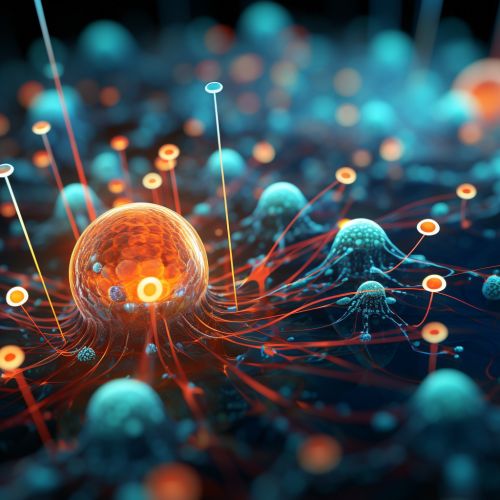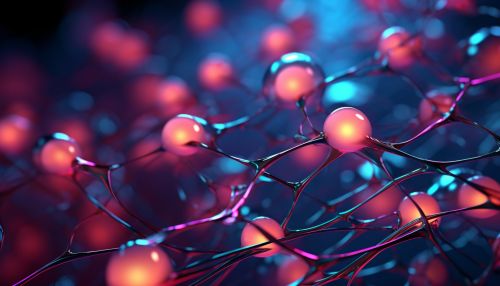Autocrine signaling
Overview
Autocrine signaling is a form of cell communication in which a cell produces and releases signals that bind to receptors on its own surface, leading to changes within the cell itself. This type of signaling is part of a larger group of communication processes known as cell signaling, which also includes paracrine, endocrine, and juxtacrine signaling.


Mechanism of Autocrine Signaling
The process of autocrine signaling begins with the production of signaling molecules, also known as ligands, within a cell. These ligands are then released into the extracellular environment. Once outside the cell, the ligands bind to specific receptors on the same cell's surface. This binding triggers a series of biochemical reactions inside the cell, leading to various cellular responses.
Role in Cellular Functions
Autocrine signaling plays a crucial role in numerous cellular functions. It is involved in cell proliferation, cell differentiation, apoptosis, and immune responses. It is also a key player in the regulation of cytokine production and the modulation of receptor expression.
Autocrine Signaling in Disease
Abnormalities in autocrine signaling pathways can lead to various diseases. For instance, overactive autocrine signaling is often associated with cancer. In such cases, cancer cells may produce and respond to their own growth signals, leading to uncontrolled proliferation. Autocrine signaling is also implicated in autoimmune diseases, where it can contribute to the overproduction of immune cells and the subsequent attack on the body's own tissues.
Research and Therapeutic Applications
Given its role in disease, autocrine signaling is a major focus of biomedical research. Understanding how autocrine signaling pathways work, and how they can go awry, can lead to the development of new therapeutic strategies. For example, drugs that block specific autocrine signals or their receptors may be useful in treating diseases such as cancer and autoimmune disorders.
